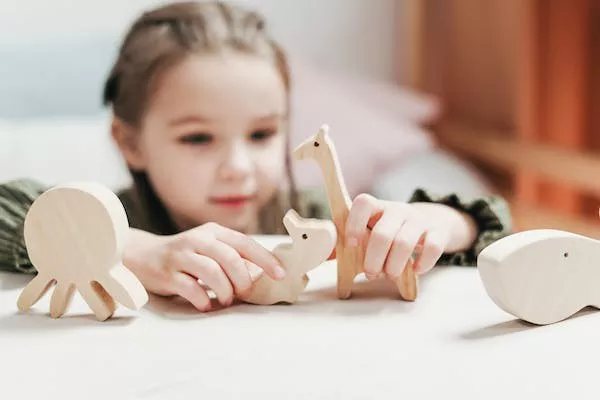The early years of a child’s life are a time of rapid growth and development, and movement plays a crucial role in this process. From crawling and rolling to walking and running, physical activity is not just a pastime for young children; it’s a fundamental aspect of their development. In this article, we will explore why movement is so important in early childhood, highlighting its cognitive, physical, and socio-emotional benefits. Understanding the significance of movement can help parents and caregivers support their child’s growth and development effectively.
Item 1: Physical Development
Motor Skills: Movement in early childhood helps develop both gross and fine motor skills. Crawling, walking, and climbing contribute to gross motor skills, while activities like stacking blocks or drawing promote fine motor skills.
Muscle Strength: Active play and movement build muscle strength, which is essential for a child’s ability to perform everyday tasks and achieve physical milestones.
Coordination: Through activities like playing catch or dancing, children learn coordination, balance, and spatial awareness.
Item 2: Cognitive Development
Brain Development: Physical activity stimulates the brain, promoting the growth of neural connections. This, in turn, enhances a child’s cognitive development, including problem-solving skills and creativity.
Memory and Learning: Research has shown that movement and physical activity can improve memory and learning abilities. Activities that involve repetition and coordination, such as dancing or building with blocks, can be particularly beneficial.
Focus and Attention: Regular physical activity helps children develop better focus and attention span, which are essential skills for academic success.
Item 3: Social and Emotional Development
Social Interaction: Movement often involves social interaction, whether it’s playing with peers at the park or participating in group activities. These interactions teach children important social skills like cooperation and sharing.
Emotional Regulation: Physical activity provides an outlet for emotional expression and can help children manage their emotions. It can reduce stress and anxiety and promote a sense of well-being.
Confidence and Self-Esteem: Achieving physical milestones and mastering new skills can boost a child’s confidence and self-esteem, fostering a positive self-image.
Item 4: Healthy Habits for Life
Establishing Habits: Encouraging movement in early childhood sets the stage for a lifetime of healthy habits. Children who are active from a young age are more likely to continue being physically active as they grow older.
Preventing Health Issues: Regular physical activity in childhood can help prevent obesity and related health issues, such as diabetes and heart disease, later in life.
Building Strong Bones: Weight-bearing activities like jumping and running help children develop strong bones, reducing the risk of osteoporosis in adulthood.
Item 5: Age-Appropriate Activities
Infants: Tummy time is crucial for infants, as it helps develop neck and upper body strength. Gentle rocking and swinging motions can also be soothing and promote balance.
Toddlers: Toddlers benefit from activities like walking, running, and climbing. They can also engage in simple games that promote coordination and balance.
Preschoolers: Preschoolers can enjoy a wide range of activities, including biking, swimming, and organized sports. Activities that involve creativity, such as drawing or building with blocks, should also be encouraged.
Conclusion:
Movement is not just a form of play for young children; it is a fundamental building block for their overall development. Physical activity fosters physical, cognitive, social, and emotional growth, providing a solid foundation for a healthy and fulfilling life. Parents, caregivers, and educators should prioritize creating opportunities for movement and play in early childhood, recognizing that these experiences are essential for shaping a child’s future physical and mental well-being. By understanding the importance of movement in early childhood, we can ensure that our children have the best possible start in life.


